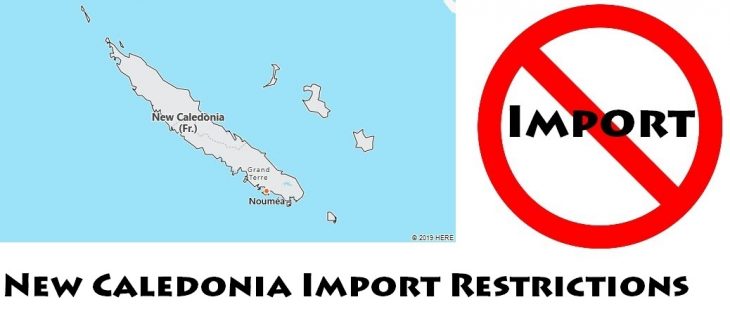New Caledonia Import Restrictions
In order to enter New Caledonia, certain goods are subject to specific controls and, regardless of their value and quantity, they require the consent of New Caledonia government, preferably, license must be obtained prior to passage through the customs, preventing the goods from being retained. On this page, you will see what kinds of items are prohibited from entering the New Caledonia, and which items need special documentation before exporting to New Caledonia.
Import regulations
New Caledonia requires an import permit for all commercial goods that exceed 2000 CFP in value. Before posting any item, senders should confirm that the addressee has the necessary permit. Senders should determine import restrictions from New Caledonian authorities before posting:
- Animal products
- Chemical products
- Coin-counterfeiting apparatus
- Films
- Plants and plant products
- Sound recordings.
- Weapons.
Special documentation requirements
Commercial goods require an invoice endorsed by the consular service. Senders should post all documents separately to the addressee.
Prohibitions
In addition to items prohibited by Dangerous and Prohibited Goods & Packaging Post Guide and ECI International Courier Regulations, New Caledonia prohibits:
- Absinthe and similar liqueurs
- Beverages resembling wines
- Book trade products, counterfeit
- Flowers
- Marks of origin, false
- Metal resembling legal coinage
- Saccharine
- Spirits containing aniseed
- Tobacco
- Weights and measures, non-metric.














































